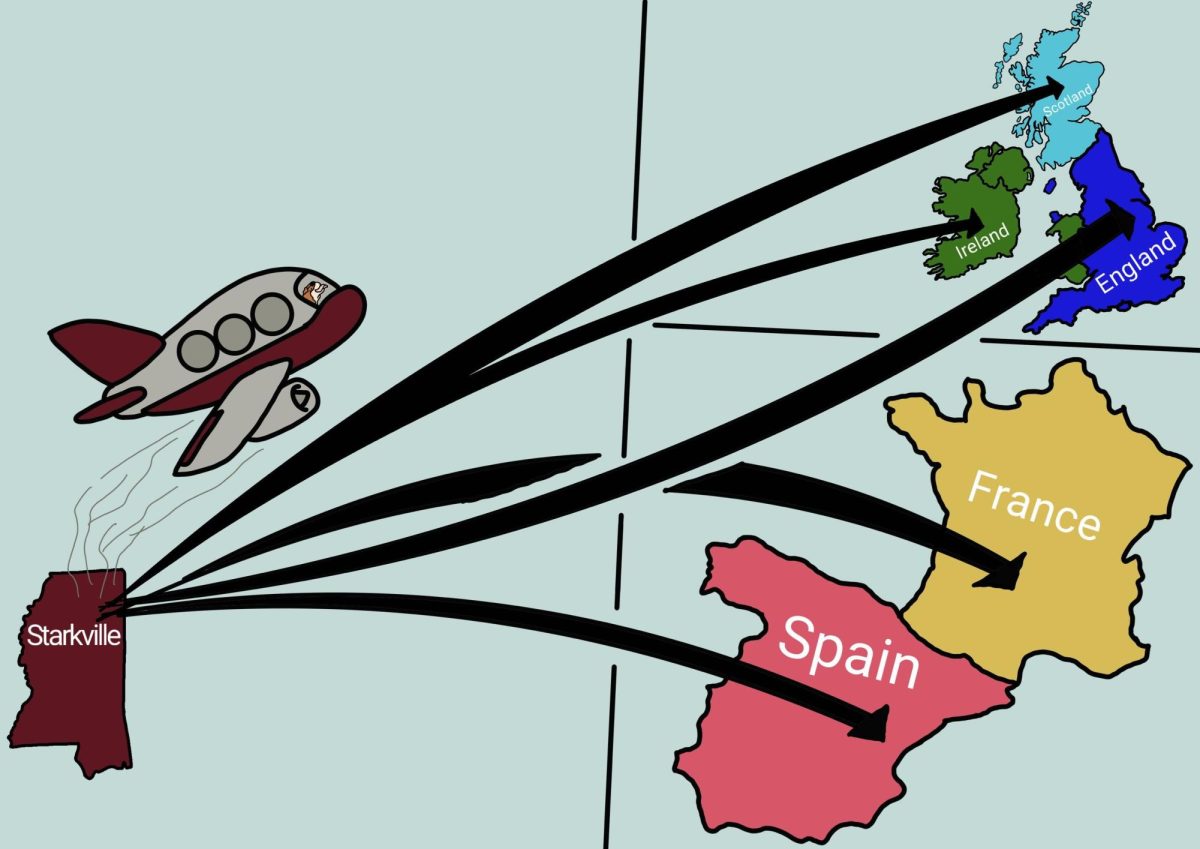The popular suggestion these days is to expand the NCAA Men’s Basketball Tournament by 31 to allow 96 teams the chance to compete for the national championship. In fact, it’s probably going to happen, maybe as soon as 2011.
Is that necessary, though? Are there really 31 more teams out there deserving of a shot at the title?
Sure, it would have been really great if Mississippi State had made it this year, as we certainly would have in a 96-team format. But our snub isn’t worth destroying the tournament’s integrity.
Let’s examine the numbers: Since the tournament expanded past 32 in 1979 and began seeding teams numerically, it has never been won by a team seeded lower than 8.
And even then, the only Cinderellas, 6-seed North Carolina State (1983), 8-seed Villanova (1985), and 6-seed Kansas (1988) all won the tournament before computer polls and bracketology were a big deal.
Nowadays, seeding is much more accurate, and since 1989, the lowest seed to win an NCAA Tournament was a 4 (Arizona in 1997), and even that has only happened once.
Even if we look at teams that just made the Final Four, only three (2.3 percent) of the 124 teams to reach the Final Four since 1979 have been seeded lower than 8: 9-seed Penn (1979), 11-seed LSU (1986) and 11-seed George Mason (2006). And notice only one of them was done in the day of intense computer rankings.
So if the NCAA Tournament decides to add another 31 teams, there’s virtually no chance that some 18-seed is ever going to win the tournament, or even come close. So what’s the point?
By expanding to 96, making the tournament just wouldn’t mean the same thing anymore. There’s no way a North Carolina team that went 5-11 in the ACC deserves to play in a tournament where seven wins means a national championship, but in a 96-team format, the Tar Heels would probably make it in, along with teams like St. Louis, Nevada and Marshall – teams that came in fourth in mid-major conferences.
I don’t think those are the kind of teams that should be rewarded with the chance to play for a national championship.
In fact, if we were going for fairness, the best solution might be to shrink the NCAA Tournament to 32 or even 16 teams. That would really turn making the tournament into an accomplishment, and guarantee teams with bad seasons would have no chance to win a title.
However, shrinking the field would rob us of some of the most exciting games, the first round drama and upsets. So I don’t think shrinking the field is a good idea either, even if it would be more fair. (Actually, the field should definitely be shrunk from 65 to 64 – the play-in game is absurd and insulting, but I could write an entire column just on that.)
When I say the first round is exciting, though, I only mean some of the first round games. Did anyone else fall asleep as Kentucky pounded 16-seed East Tennessee State this year?
Yes, that’s right. East Tennessee State, a team with five losses to sub-200 RPI teams got to play in a tournament for the national championship simply due to its Atlantic Sun Tournament victories over legendary powerhouses like Campbell, Kennesaw State and Mercer.
The NCAA Tournament lets in the champion of each conference tournament (except the Great West), even though at least 10 of them are awful and have no business playing for a national title. Therefore, each year there are at least 10 snoozer games that involve a good team pulverizing a bad one. Zzzzzz.
Why not just let the 64 best teams play, regardless of conference? Yeah, you might get a team or two in there that doesn’t deserve it, but the committee can’t just set an arbitrary number from year-to-year. Maybe Dayton’s 8-8 Atlantic 10 record doesn’t justify a bid to the NCAA Tournament, but by my reckoning, the Flyers’ regular season makes them the 64th and final team into the tourney.
Above, I’ve included a bracket of what this year’s tournament might have looked like if this plan were in effect. I just took the committee’s picks for the 1-11 seeds and filled in the lower seeds with teams that actually deserved to be there. (I created this on Selection Sunday to guarantee that actual tournament results would not cloud my judgment.)
Love mid-major Cinderellas? Well, my bracket includes 25 teams from outside the major conferences, so it’s not like this plan would exclude them.
Love first-round upsets? This plan gives the opportunity for more. Under the current format, no 16-seed has ever beaten a 1, and probably never will.
Under my format, the 1-seeds would still be heavily favored, but the games would still be interesting. I’m sure Dayton still would have lost to Kentucky, but at least the game would have been interesting to watch.
Sure, Ohio beat Georgetown this year and Robert Morris took Villanova to overtime, but those results were more the cause of Georgetown and Villanova not playing to the level they should have, not the bad mid-majors actually being better than we thought. They just didn’t come to play – I’m confident that had Wichita State been their first-round opponent instead of a hapless Robert Morris team, the Wildcats would have been “Shocked” in the first round.
Any conference tournament or regular season champion that is not selected for the NCAA Tournament could then go to the NIT, which could be set up like a mid-major national championship. Teams who can never realistically plan to be a national title contender could set their goals as making the NIT Final Four. Under this plan, the NIT would actually mean something to the teams playing, instead of being a boring hodgepodge of disillusioned teams that almost made it and other bad major conference teams.
In the end, it’s all about fairness and an exciting tournament. A 96-team tournament won’t kill all of the excitement, but it will water down the achievement of making it. On the other hand, by eliminating the autobids and just choosing the 64 best teams, we could increase the excitement and the fairness.
Harry Nelson is the opinion editor of The Reflector. He can be contacted at [email protected].

Rather than expand NCAA Tourney, let best 64 teams play
Donate to The Reflector
Your donation will support the student journalists of Mississippi State University. Your contribution will allow us to purchase equipment and cover our annual website hosting costs.






















































































